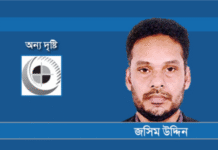A life and death in the NHS

All medical institutions should aspire to provide such exemplary service
My father died last week aged 80 in a North West London hospital.
He had survived as a widower for over 16 years, most of them completely independently. Since November 2016 however, he has had to endure various long admissions and begun dialysis.
As a retired medical doctor, conscious of his own frailty, he often told my brother and me to prepare for the inevitable. He was right. His heart stopped one day. A highly professional ambulance crew rapidly revived him, and emergency and intensive care teams sustained him for first hours, then days.
He became well enough to breathe unaided, tell my brother and me to thank the staff, say he is exhausted, and smile at the mention of his grandchildren. But he had little else left in reserve.
We buried him last Friday.
Just three weeks ago, he was dressing and moving about his own house by himself with a better appetite than at the start of last year.
I am grateful that participating in the ritual washing (ghusl) of his body had a calming effect at the start of a long day. Prayers, condolences, relatives, grief, the memories and love of grandchildren, family, friends, and colleagues — the older we get the more familiar we become with funeral rites.
Like other Bangladeshis of his generation born during British rule, Abba acquired several nationalities during the 20th century.
Like many others from all around the world, he was to become an “accidental immigrant” to the UK, working for the National Health Service, after first travelling there for post-graduate study in the mid-1960s.
It was accidental because our family spent many months in Dhaka in the 1973 to early 1975 period, trying but never managing “to go back.” Had this period not imprinted myself as a child, I doubt I would ever have sought work in Bangladesh myself some decades later.
While I already knew how my brother and I have been shaped by our parents, it has been moving to share memories with others. From cousins talking about afternoons spent watching comedies and cricket to friends using words like compassion and admire, I know how he is missed.
By a quirk of fate, while he spent the longest part of his career as a GP in a northern city that we all loved, Amma’s ill health brought him back to live near the hospital at which he first worked in London.
With Covid-19 putting a huge strain on medical resources the world over, now for me is the time to record how positively I have seen the NHS perform over the last few years.
It’s not that my father never saw resources misspent or discussed how much could be improved or delivered better, or worried about government policy, or how much better it was when all doctors worked the hours he did back in the day — often that’s all we talked about.
But overall the average standard of care most people got seems a good one. I have seen the system work well for my father. Not because he got any special treatment as a doctor, but because he got good treatment as a citizen, as a basic right.
From free medicines delivered to his door to free transport to and from dialysis, none of this required much more effort on his part than sometimes giving his name and date of birth.
During his stays in hospital, including the final week when in a sense there was no hope left, nobody counted the many hundreds of medical staff hours devoted to care, drug, and equipment costs.
It is not just dedication and effort I have witnessed among nurses and doctors over many hospital visits, it is the courtesy and friendliness with which the staff spoke to all patients and visitors.
I am proud my father and others like him have been part of this great British institution.
Niaz Alam is Dhaka Tribune’s London Bureau Chief. A qualified lawyer, he has worked on corporate responsibility and ethical investment issues since 1992. He sat on the Board of the London Pensions Fund Authority between 2001-2010, is a former vice-chair of War on Want and was Hon Secretary of the Foreign Press Association in 2018-19.









